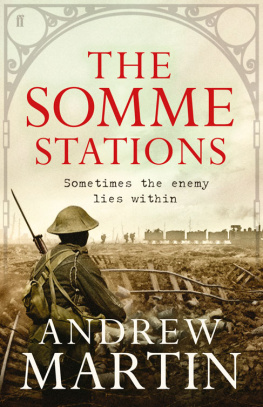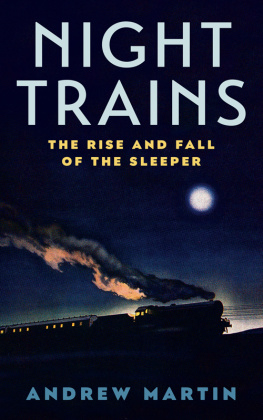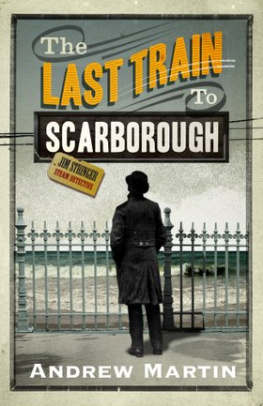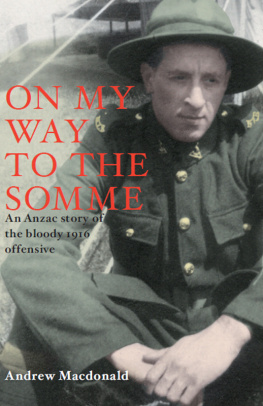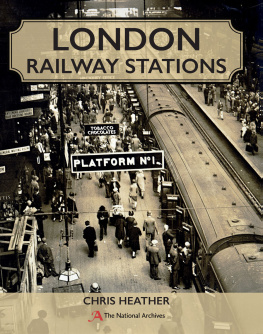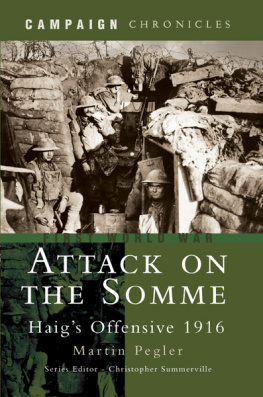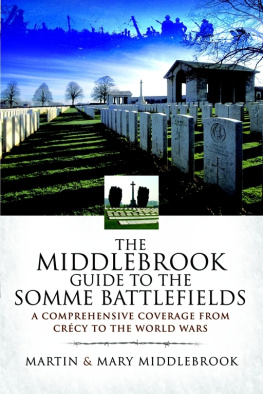Andrew Martin - The Somme Stations (Jim Stringer Steam Detective 7)
Here you can read online Andrew Martin - The Somme Stations (Jim Stringer Steam Detective 7) full text of the book (entire story) in english for free. Download pdf and epub, get meaning, cover and reviews about this ebook. year: 2011, publisher: Faber and Faber Ltd, genre: Detective and thriller. Description of the work, (preface) as well as reviews are available. Best literature library LitArk.com created for fans of good reading and offers a wide selection of genres:
Romance novel
Science fiction
Adventure
Detective
Science
History
Home and family
Prose
Art
Politics
Computer
Non-fiction
Religion
Business
Children
Humor
Choose a favorite category and find really read worthwhile books. Enjoy immersion in the world of imagination, feel the emotions of the characters or learn something new for yourself, make an fascinating discovery.
- Book:The Somme Stations (Jim Stringer Steam Detective 7)
- Author:
- Publisher:Faber and Faber Ltd
- Genre:
- Year:2011
- Rating:5 / 5
- Favourites:Add to favourites
- Your mark:
- 100
- 1
- 2
- 3
- 4
- 5
The Somme Stations (Jim Stringer Steam Detective 7): summary, description and annotation
We offer to read an annotation, description, summary or preface (depends on what the author of the book "The Somme Stations (Jim Stringer Steam Detective 7)" wrote himself). If you haven't found the necessary information about the book — write in the comments, we will try to find it.
The Somme Stations (Jim Stringer Steam Detective 7) — read online for free the complete book (whole text) full work
Below is the text of the book, divided by pages. System saving the place of the last page read, allows you to conveniently read the book "The Somme Stations (Jim Stringer Steam Detective 7)" online for free, without having to search again every time where you left off. Put a bookmark, and you can go to the page where you finished reading at any time.
Font size:
Interval:
Bookmark:

ANDREW MARTIN

I am particularly grateful to Richard Callaghan, curator of the Royal Military Police Museum, and to Lieutenant Colonel Parkinson, head of Media and Protocol at Sandhurst. I am also indebted to Bob Gratton and Dale Coton, both of the Ashover Light Railway; to Rupert Lodge of the Leighton Buzzard Railway, and David Negus of the Southwold Railway Trust; to Dr John Bourne, of the Centre for First World War Studies at the University of Birmingham; to Major David James-Roll, and to F. Martin. All embellishment of the historical facts, and all mistakes, are mine and not theirs.
The characters in this novel are completely imaginary, and bear no relation to anyone who might really have lived in York during the First World War, or served on the light railways of the Western Front, or fought with that noble body of men, the 17th Northumberland Fusiliers.
Ilkley
Moor View,
The Grove,
Ilkley,
Yorkshire.
October 6th, 1916
Dearest Lillian,
An unseen mans voice gives the shout of Right away! and the little locomotive moves forward on tracks running over what might be hard mud with pools of dark water, or a shining table top. There is darkness in the sky, or in the room, and an orange fire-glow coming from one side. There are small men inside the engine, and riding on the wagons pulled behind, but they are not quite as small as their train, and they stick out from it at peculiar angles. It is an odd accommodation: men who are perhaps toy soldiers riding in what may be a toy train. And some of them are unquestionably leaning far too far over, and seem very likely at any minute to fall, but there is nothing to be done about that. (I forgot to say, or I forgot to notice, Lillian, that the load carried consists of so many bombs.)
The first part of the line is straight and all is well, the train goes smoothly. But it is coming up to a bump where the track has not been flattened down quite enough, and a clock is ticking somewhere that I dont like the sound of. The train is now at the bump, and the engine runs over it well enough, although the first wagon jolts, and tilts The train stays on the track. It has no time to settle down, however, for it is coming up to a bend now, and seems to be coming up far too fast. I tell it to slow down, but I know I cannot be heard, I am too far away. The engine speeds into the bend, leaning. A man riding on the rear wagon falls over backwards, but stays on the wagon, and the train remains upright. Encouraged by this success, the train is racing faster now, and coming up to a place where another line goes off a complication in the track that will surely spill it if it does not slow. The engine seems to batter its way through the complication, and the first following wagon does likewise, as do the second and the third, but the fourth and last gives a jump. Is it over? Yes, although the little man who had earlier fallen over skitters away by the side of the track, and another curve is coming, and the train is hurtling towards it at full speed. The wheels on the far side are off the ground; the speed increases, and I cry out But the train is over, and the locomotive is on its side. Its wheels still spin, but there is a sudden silence, which makes me realise there had been a great whirring before. There is now only the steady ticking of the clock, and the little men lying about on either side of the wreckage.
Are they dead? I ask the voice.
Of course they are, the voice replies. What did you expect?
Well, dearest, you must think me quite
Ardenlea,
Queens Drive,
Ilkley,
Yorkshire.
October 9th, 1916
Dearest Lillian,
I am writing this in the library of the railwaymens convalescent home on the edge of Ilkley Moor, where Life Passes in A Pleasant Dream that is according to the sign over the door. I am supposed to be making the second of my one-hour daily visits with Jim, but he is asleep, so instead I am sitting by an open window in the library, looking at the autumn display in the gardens, the low sun on the Moor beyond, and writing to you at last. (I should say that I started a letter to you three days ago, on my first arriving here. It was an account of a nightmare and I decided, after a turn in the park, that it was altogether too strange to send.)
The shell smashed Jims right femur (thats a thigh bone to you and me), and when he was brought to Ilkley, it was discovered that the bone had not been set properly by the army doctors, so it was re-set here at the Ilkley hospital by another army doctor, name of Hawks, but I take comfort from the fact that this one is a Colonel. (You cant get much higher than that, can you?)
Hawks let me know through one of his nurses that the re-setting had gone extremely well (but then hed hardly say hed fouled it up, would he?) and that Jims leg ought to mend without difficulty. He does seem very quiet, and very pale, and he talks in his sleep. Just now in his room, he was muttering over and again, little and often, little and often and fine style, fine style. Ive no idea what this means, and fear it may mean nothing at all.
But let me tell you a little about this place.
The house was opened last year by a man with the perfectly ridiculous name of Sir Godfrey Glanville Gordon, General Manager of the North Eastern Railway, which is quite appropriate since he founded the North Eastern Railway regiment in the service of which some of the men here were so disastrously wounded. It is built in the Renaissance style (I wont pretend that means anything much to me, dear), is fitted out in expensive mahogany, and is very hushed, or supposedly so, because of the nervous cases. The men wear pale blue uniforms, and are all inveterate smokers. Jim hardly smoked before the war, but now he is on, as he told me yesterday while sitting up in bed, a packet a day. His cigarettes are called Virginians Select. They are horribly smelly, and of course theyre doing him no good at all.
There is a tower here: fifty stairs to the top of it, where a terrace with a low railing overlooks the River Swale and Ilkley Moor, which as you know is practically a mountain. According to the notices in the lobby, the well-wooded hillside of the Moor affords pleasant walks. There are in addition tranquil lanes for strolling by the river, and walkways among the gardens and grounds; and it is boasted everywhere that we are only ten minutes walk from the station.
Dear Lillian, half the men here cant walk.
The lying down cases are kept on the second floor (which doesnt seem very logical) and are carried down by the orderlies on long chairs. They are then very often taken directly to the billiard room where they watch or play well not billiards, evidently, but snooker. It is a game that can at a pinch be played by a man on crutches, but they must take care at the beginning. The first thing that happens in the game as played properly is that the player smashes the white ball into all the others. This is called breaking off (I think). Now there are men here the nervous cases who can hear the crash of those balls from anywhere in the house and the noise is capable of bringing on a collapse. So the snooker players do not break off but scatter the balls with their hands to get the game going. At all times, the men are careful not to make a commotion. They do not talk to each other very much, but play their snooker and cards, and sit and smoke. They all understand each other perfectly, and without need of conversation. They have all been through it, over there in France, even though they were not all in the same places. Those who have not been there cannot possibly be expected to understand.
Next pageFont size:
Interval:
Bookmark:
Similar books «The Somme Stations (Jim Stringer Steam Detective 7)»
Look at similar books to The Somme Stations (Jim Stringer Steam Detective 7). We have selected literature similar in name and meaning in the hope of providing readers with more options to find new, interesting, not yet read works.
Discussion, reviews of the book The Somme Stations (Jim Stringer Steam Detective 7) and just readers' own opinions. Leave your comments, write what you think about the work, its meaning or the main characters. Specify what exactly you liked and what you didn't like, and why you think so.

